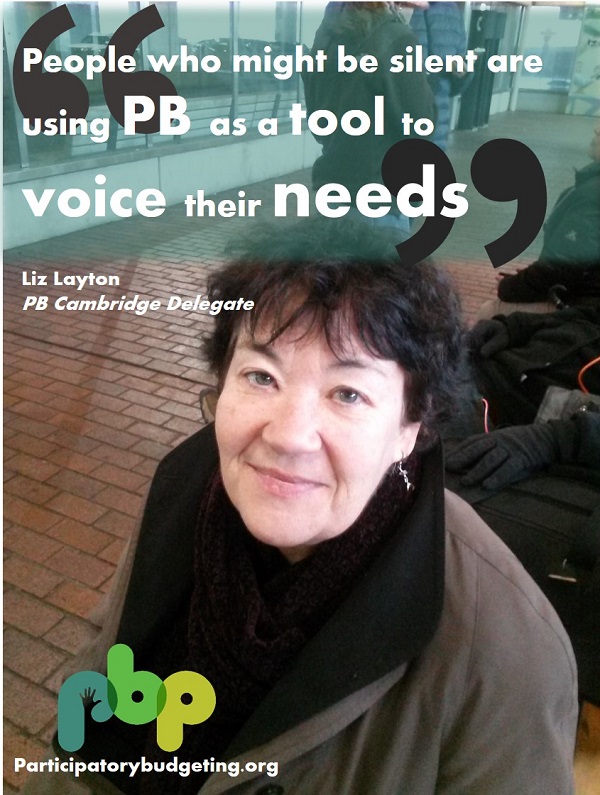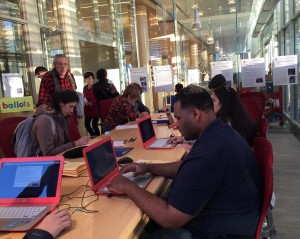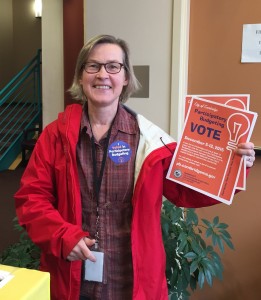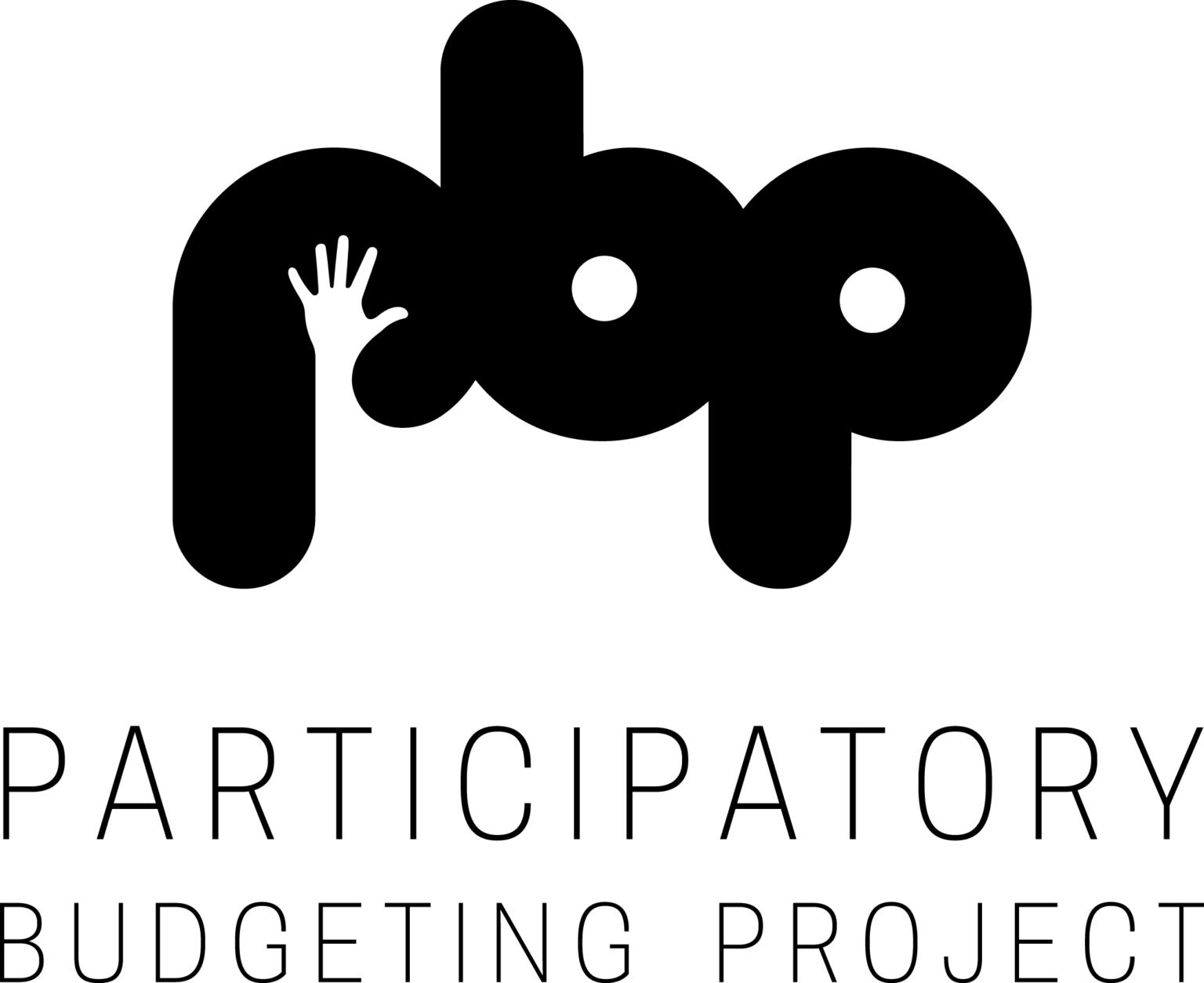PB Cambridge’s “Food Rescue Freezer Van” project is expected to double the capacity of meals to be rescued and distributed, ranging from about 3,500-7,000 healthy frozen meals. The Food Rescue project was one out of seven projects that won funds through PB Cambridge voters and expands on the Massachusetts food waste ban, meant to reduce food waste and cost of waste management. Second time budget delegate Liz Layton shares her insight on how community needs were met throughout the PB process. Liz and her fellow Environment, Health and Safety Committee proposed the project in the second cycle of PB Cambridge to sustain access to healthy meals and keep community needs at the forefront of local government.

PBP: How did you learn about PB?
Liz: I heard about Cambridge’s PB process from a friend who is also a neighborhood activist. She suggested that I sign up as a budget delegate and her insight gave me an impression of what was going to be possible through PB. I grew up going to town hall meetings and learned the importance of vocalizing community needs. Since learning about PB, I have volunteered my time as a budget delegate for two cycles.
PBP: What part of the PB process were you involved in?
Liz: My first time as a budget delegate, I worked on a program carried out by the Cambridge Public Health Department called the Agenda for Children’s Literacy Initiative. The program supports childhood development through teaching literacy and language skills, preparing children for entering primary education. My proposal was to set aside more funding for them through PB so that they could expand their services. I was able to do this with a woman who runs the project. She gave me all the information up front and showed me the importance of having a willing partner in the city who is willing to take on the extra work.
During my second round of PB, I joined the Environment, Health and Safety Committee. The proposals doubled this year compared to last year. While there’s more work, it shows that there are more people who are interested.
PBP: How does PB build community power?
Liz: PB is about engaging people who view politics as something irrelevant outside of voting season. I talk about PB with people in my neighborhood who are curious about it and I describe it as a process where the city has more than half a million dollars, you can decide how to spend it. After saying that, people bring up a lot of ideas but also ask “how do I know this is going to work?”. That’s when I introduce them to the idea of being a budget delegate. I’ve been involved in PB for two rounds and I see that people want to share their ideas and hope that it makes it on the ballot.
The PB process has also informed me on the many programs that the City of Cambridge offers. However, there is still a need for access to resources such as employment opportunities, affordable housing, educational resources and food security. There are many people passionate about addressing community needs which the PB process helps facilitate.
PBP: How did PB open opportunities to address local concerns?
Liz: There were a lot of proposals trying to address the visible homeless population in our area which people wanted us to address. This was challenging as Massachusetts state laws requires that funding for the homeless be tied to social services. The approach of the state is that they want people to get connected to services so they can stabilize their situation. The food rescue project is unique because other delegates and I had to tailor the proposal to make it eligible for capital funding. Paige Manning was one of the committee members that helped pull the food van proposal together and oversaw that the process was a success. We expanded on previous food rescue projects that were created after the implementation of the Massachusetts food waste ban. Many people were able to pick up meals from university dining halls but there was no way to deliver those meals and reach more people in need. We decided to make this service more accessible and proposed picking up food from universities and restaurants that would be thrown away, to instead collect, freeze and deliver them as meals to people in need. This would allow for more food pickups and more places to distribute prepared meals to different parts of the city.
When I look at how PB started in Brazil, it was based on crucial needs and people who wanted their city to provide running water, sewers and transportation so that they could get to their jobs. Looking at Cambridge, we don’t need those services but we do have issues where people can’t find housing they can afford or other resources. When the city makes these funds available, they leave it up to us, the people, to push for ideas that will help the community.
PBP: What role do you think the food rescue project with play in Cambridge?
Liz: The food rescue freezer van is estimated to double the amount of healthy and accessible meals throughout the City of Cambridge. It’s also not limited to those who are homeless. Anyone can benefit, from individuals and families who don’t have time to cook, don’t have access to a kitchen or healthy meals. It will also significantly reduce food waste and makes food a resource that is accessible to everyone.
 PBP: What would you like to see for PB in the future?
PBP: What would you like to see for PB in the future?
Liz: I would like to hear from more people who aren’t necessarily represented, not only in our committees but also those who are marginalized from civic engagement. With the work that I do in my neighborhood group and with the PB committee, we are always brainstorming on how we can reach people and get their ideas out. There’s a lot that can be done through outreach and emails but successful outreach cannot rely on just technology. I think the most successful outreach should also rely on door to door outreach. It’s a challenge to connect with people who could benefit from PB but don’t necessarily know that it exists. For the next round, I would like to have time built in for the budget delegates to meet in the street and do some work networking with people.
While this is a more direct approach in getting more people involved, the city has also made an effort to review project proposals that haven’t been funded. Those proposals show the city that people who might not be as active are using PB as a way to let the city know what to focus on. That is the big value behind PB, people who might be silent are using PB as a tool to voice their needs.
PBP: Did you feel that your voice was heard through PB? 
Liz: While I go to a lot of city meetings, I don’t tend to speak up in public meetings. I feel that my voice was heard louder through the PB process.
****For more information on PB Cambridge, check out their PB promo video!





